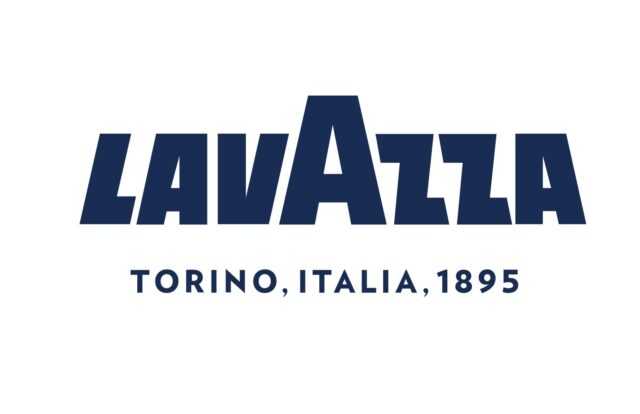PARIS, France – Lavazza Group, one of the world’s leading coffee roasters and official coffee at Roland-Garros, has chosen the prestigious French tournament to present its vision of growth and its latest sustainability results. The inspiring backdrop provided by the French Grand Slam, with which Lavazza has shared values such as the pursuit of excellence, innovation and commitment to sustainability since 2015, is once again a strategic platform for sharing the coffee experience and showcasing the Group’s most significant and forward-looking new developments.
“Today, for the ninth year, we’re back at this prestigious tournament in France, which continues to be one of the Group’s most important markets,” said the Group’s new Chairman Giuseppe Lavazza. “We’re carrying forward our internationalisation process, which in a little over a decade has seen a doubling of the company’s sales, with 70% of revenues now coming from abroad and an increasingly strong focus on economic, social and environmental sustainability.”
The Group reported excellent results in 2022, with revenue growth of 17.6% compared to 2021, thanks to an effective internationalisation strategy, in which France has led the way with new acquisitions, and a continual stream of innovations reflecting the integration of ESG criteria into its business model.
Lavazza and Sustainability at Roland Garros: The latest environmental and social results from the 2022 Sustainability Report
- 98% of the coffee produced by the Group is made with renewable energy;
- €25m invested up to 2022 sustainable packaging roadmap;
- 66% of the packaging used by the Group’s entire product portfolio is already recyclable, with 100% targeted by 2025 in line with our Sustainable Packaging Roadmap;
- over 89% of waste generated by production plants is recovered and recycled;
- 97% of vegetable waste from coffee processing in Italian plants is turned into fertilizers.
With the formation of the Lavazza Foundation in 2004, the Group began to give a structure to its commitment to social, environmental and economic sustainability, which started with support for coffee-producing communities through measurable projects, 33 today, that benefit over 180,000 coffee growers in 21 countries across three continents.
Through collaboration with local community players, the Foundation aims to improve coffee production yields and quality, promote entrepreneurship among producers and improve their living conditions, at the same time as valuing women’s work and involving the new generations.
La Reserva De ¡Tierra! Cuba: At Roland Garros, a story of contemporary sustainability
La Reserva De ¡Tierra! Cuba, a contemporary sustainable coffee experience, is one of the outcomes of Lavazza’s environmental and social commitment. In Cuba, in 2018, Lavazza Group launched a sustainable development programme through the Lavazza Foundation in collaboration with the Cuban Agriculture Ministry, GAF (Grupo Empresarial Agroforestal) and AICEC Torino (Agenzia di Interscambio Culturale ed Economico con Cuba) with two objectives.
First, to revive coffee growing in the country, which was drastically cut back by exploitation and deforestation in the late 19th and early 20th centuries, thus contributing to the reforestation programme underway.
The second is to restore the quality of Cuban green coffee to the levels of excellence that had made it famous worldwide, thus creating shared value along the chain, starting with improvements to the socio-economic conditions of local coffee producing communities and with a special focus on women and young people.
“This is one of the most important projects that the Lavazza Foundation has undertaken since it began life in 2004. Thanks to the extraordinary efforts and collective commitment of many players, the programme has managed to relaunch, starting from zero, one of the oldest centres of quality coffee production. This initiative is designed to revive the Cuban production that had disappeared many years ago but remained a legendary utopia in the minds of those who had known it, like us, a company in the coffee business for over 125 years,” concluded Giuseppe Lavazza.
This sustainable development programme led to the formation of a Cuban economic association to support structural development in the coffee production chain, so that an industry that had lain dormant in recent years can realise its full potential. And this is also the origin of the new La Reserva De ¡Tierra! Cuba blend, which contains beans grown by 170 farmers in the provinces of Santiago and Granma that the Foundation has involved in the project. And the story of this coffee is completely traceable in the interests of transparency, as well as being guaranteed by integrated blockchain technology that also gives consumers access to comprehensive information about the supply chain and the product, from plantation to cup.
Lavazza Group’s synergistic work with local authorities involved in the Foundation’s activities has resulted in a blend that takes care of farmers, promotes the role of women and young people, and helps the environment in terms of forest conservation and sharing good farming practices. All of which improves the quality of the coffee and the socio-economic conditions of the coffee producing communities.
Lastly, in a complex environmental and social context like Cuba’s, technological innovation also plays a central role in helping farmers cope with the impact of climate change on a particularly vulnerable crop like coffee. Thanks to technological systems introduced as part of the Foundation’s project, there is now constant monitoring of conditions in the plantations, from air temperatures to rainwater accumulations, and from wind speed and direction to soil humidity, thus helping farmers to rapidly employ the most suitable techniques to safeguard their coffee production.


















